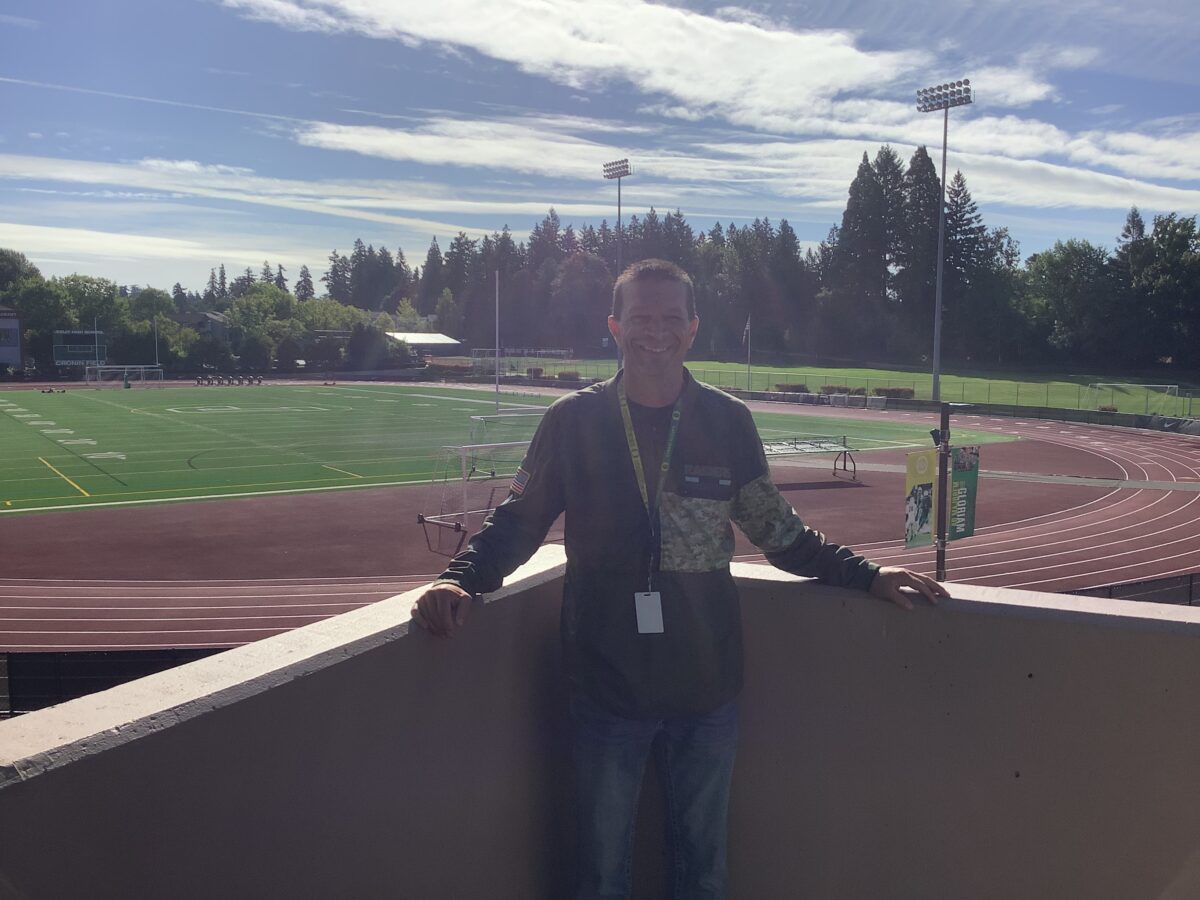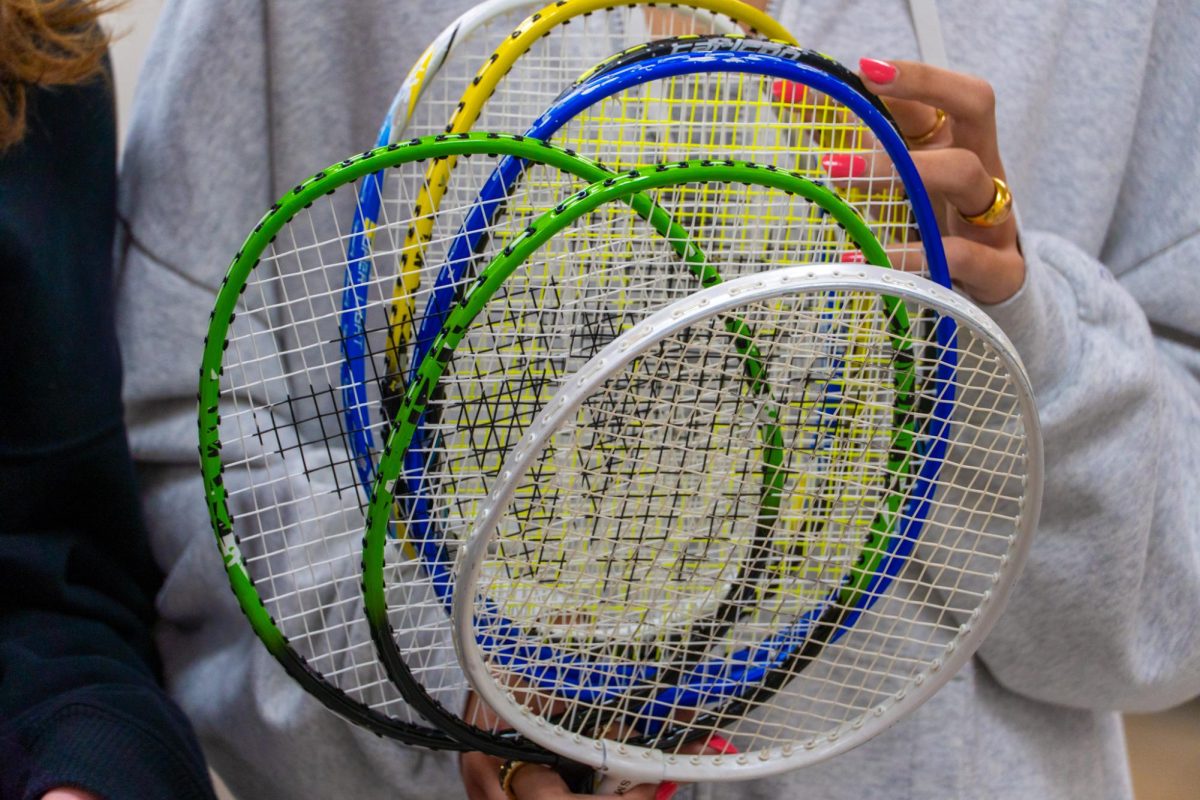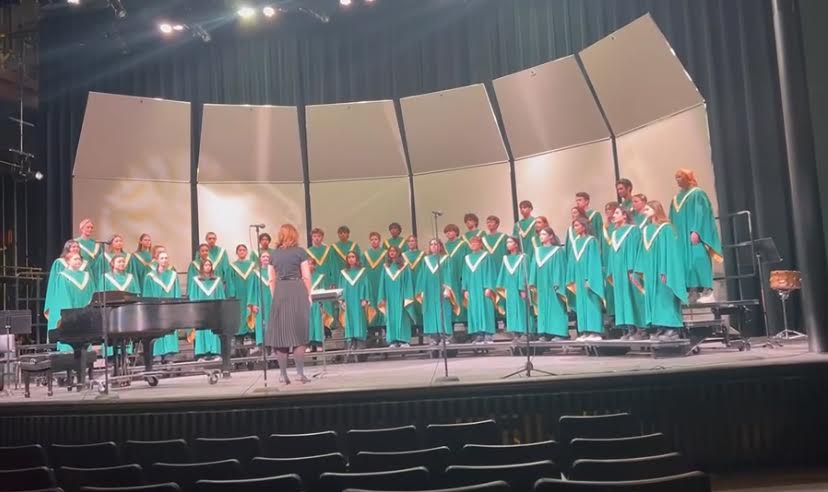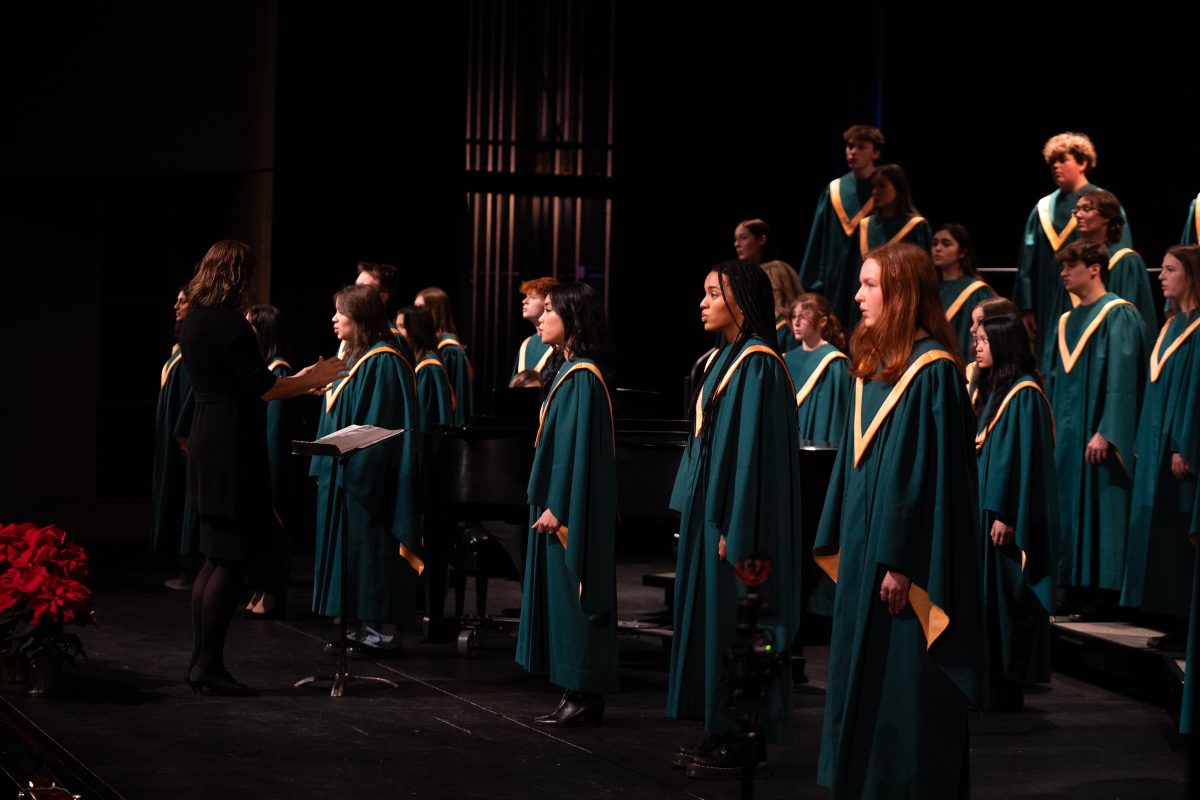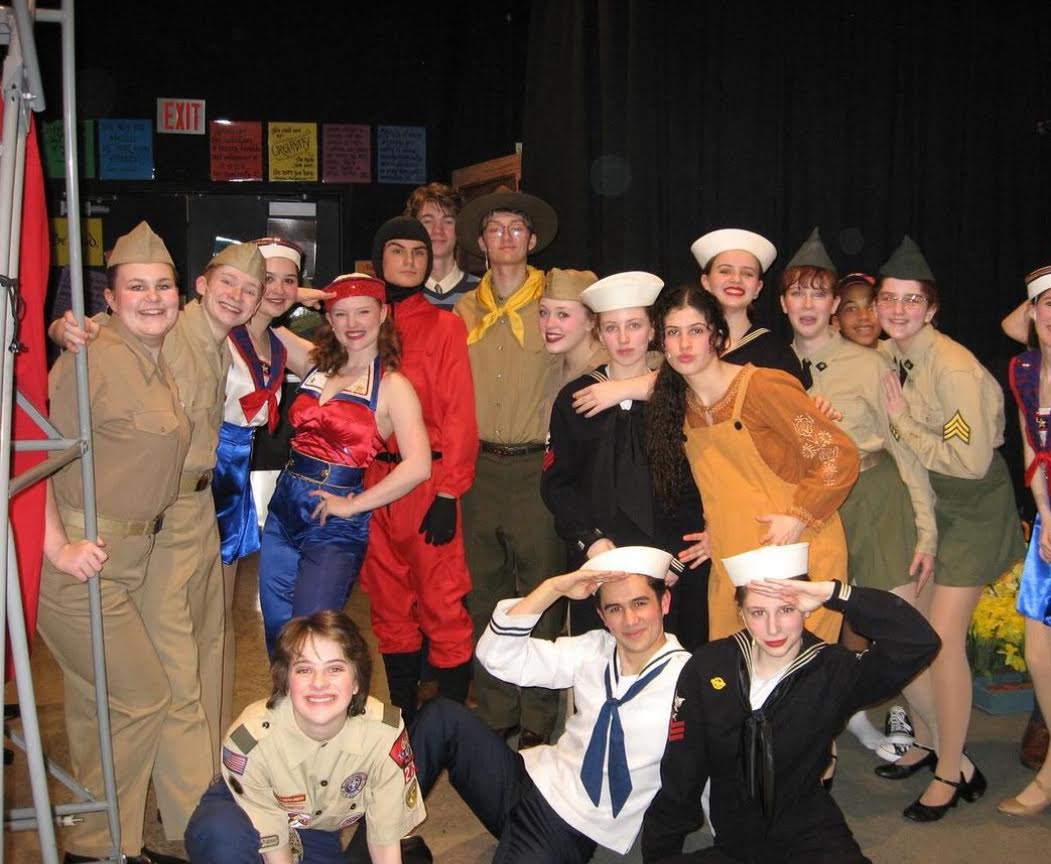Before coming to Jesuit, Mr. Kessler had plenty of experience at his previous schools such as Tigard High School, Century, and Beaverton.
Kessler is an on-campus substitute teacher and football and track coach. His schedule is different every day and he never knows where he’s going to be until that morning.
“I live with a backpack. I traveled around with a backpack, right? I don’t really have an office, right?,” Kessler said.
Although his schedule is never consistent, it gives him opportunities to meet and interact with many different students.
“It’s just that I get to go into different classes all the time,” Kessler said. “You can talk to different kids and meet different kids which helps for track and football, right? I know football kids and track kids and then I know kids in the class and I’m playing in all different variable classes, then I can see a bunch of different things.”
Kessler finds enjoyment in his job by talking and building relationships with the students of Jesuit High School.
“It’s a good quote. Theodore Roosevelt, ‘Nobody cares how much you know until you know how much you care’”
Entire Transcript (Edited for Clarity)
Where did you talk prior to teaching here at Jesuit?
I started out coaching at Tigard High School and I went to Century high school when it was first opened in 1997. I was there for about three years. When I went to Beaverton. I want to say I was to be returned about 12 years to protect that I went to Tigard for a long time. Just one and a half and then I came here when the track job came up.
When you read the previous schools for coaching Did you only do track or like judgment now? Did you do football too?
I did. Both almost everywhere. I went to a couple schools and also did wrestling.
What are your main responsibilities here?
Every day is different. So as an in building, I don’t know what I’m doing until I get here that day. So if there’s a teacher that calls in sick to take care of their class, nobody’s sick. They’ve got me doing their thing. So every day is different, kind of like a firefighter. I just you know when there’s a fire I go and
How do you prepare for that just not knowing like not having a real schedule day to day?
I live with a backpack. I traveled around with a backpack, right? I don’t really have an office. Right? So everything’s flooding but it’s okay because every day every day is different. But it is there are obstacles when you don’t have consistency and where you set your stuff like you guys have the schedule, right where you’re going, you know, first period second period third period, and you have a backpack that goes but I don’t know until I get here where I’m going with that cut back. Right. So there’s no office to like, say, like, like this meeting. We got to freelance for this meeting. Yeah, I don’t know until I get here the day of where I’m gonna be. Right so it’s hard to schedule that. But there’s layers of difficulty to it, but it’s also not. I don’t see it as a downfall either. It’s just that I get to go into different classes all the time. You can talk to different kids and meet different kids which helps for track and football. I know football kids and attract kids and then I know kids in the class and I’m playing in all different variable classes, then I can see a bunch of different things. Freshmen
Yeah. What excites you most about your work at Jesuit?
Well, at any school, it’s always the energy with the kids. Right? So like, I’ve been doing it for a long time and you can get old and kind of complacent. But I never think that way because I think about how I was when I was in high school in college, and what I was thinking and use the energy of the kids in the same way, right? So I try and match that energy with them on a daily basis, no matter whether I mean geology class. Or I track workouts around football practices.
Oh, what is something that Jesuit community should know about religious
Passionate about helping kids. So in sports, I want the kids to get as good as they can get whether they’re going to go and be a collegiate athlete, or they’re just going to participate in high school. I want them to have a good experience and whatever their goals are. And the same thing in the classroom. I want them to have a good time. So usually when a substitute comes in, they’re not aware of what the teachers’ concepts and everything are, where they’re going and all that. So coming up with a little bit of energy or trying to put bandaids on things that you may or may not know where the kids are at and trying to help them get somewhere during that period. That is progress. That’s what’s helping kids get where they want to go. Yeah,
That’s great. Finally, to close this interview out, what is the best piece of advice you’ve ever received?
It’s a good quote. Theodore Roosevelt, nobody cares how much you know until you know how much you care. So I can know all the information in the world. But if I didn’t care about knowing your name, or who you were as a person, or did they ever make eye contact with you? What would that tell? You wouldn’t really care. Why that quote means a lot to me because with track football, being in the school, different classes and through relationships with kids, right? That’s the important part. Right? It’s just trying to get everybody where they want to go. And give them a spot.
And then what about talking about being unafraid? Like during track season?
Yeah, so that was our motto this last track season. So being unafraid to try something or to fail at something. A lot of people get bogged down in failure. In sports, school, there’s a lot of times where things don’t go right ahead and you can’t steer your life being afraid to make a mistake. Because usually what that ends up doing is making more mistakes or making more things go poorly for you. You have to be willing to try things and take risks, do something crazy that you haven’t done before to get a different result. And then when it works, keep doing it and make it work for you again. Alright, so that’s kind of the whole theory behind being unafraid is don’t let outside forces dictate what you want to be. You get to dictate what you want to do. So you make a choice whether you want to try and train harder and get faster, or you want to study longer and get smarter. Those are choices.
Thank you so much for being here for this interview. We really appreciate it.
Awesome. Thank you.
Thank you.
Thanks.



